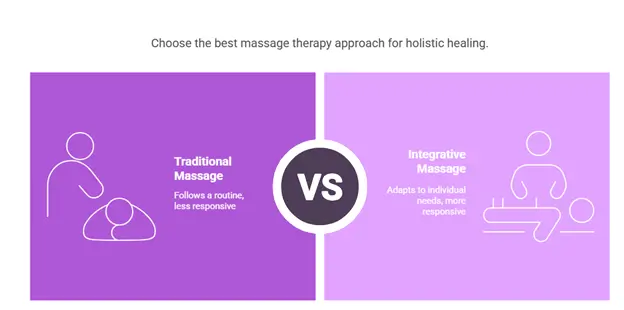We offer quality massage services to fit the needs of all of our clients.
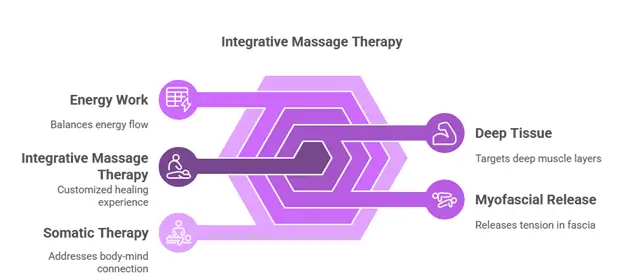
In today’s fast-paced world, more people are turning to integrative massage therapy for real, lasting relief. Unlike one-size-fits-all sessions, integrative massage blends techniques to target both body and mind. Whether you’re dealing with chronic pain, stress, or emotional exhaustion, this personalized approach helps restore balance in a way traditional massage often can’t. By combining elements of therapeutic massage, holistic health, and bodywork, it supports full-body healing. If you’ve tried other methods without results, integrative therapeutic massage may be the solution you’ve been looking for—because no two bodies (or healing journeys) are the same.
So, what is integrative massage therapy? At its core, it’s a customized healing experience that blends multiple techniques—like deep tissue, myofascial release, energy work, and somatic therapy—to suit your body’s unique needs. Unlike traditional massage, which often follows a fixed routine, integrative therapy adapts in real time. A certified licensed massage therapist listens not only with their hands but with empathy, intuition, and a holistic understanding of the body-mind connection. It’s not just a treatment—it’s a conversation between your body and the therapist’s skilled touch.
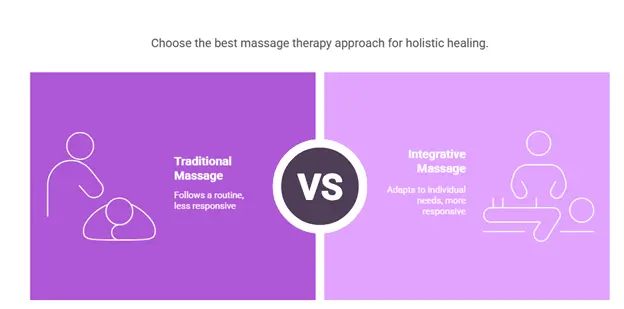
Many people seek out integrative massage for physical relief, but the benefits go far deeper. It can reduce muscle tension, support emotional trauma release, ease anxiety, and regulate the nervous system. If you struggle with PTSD, sleep disorders, or chronic stress, this therapy works on multiple levels—physically grounding the body while soothing emotional patterns. It’s often used for fibromyalgia, headaches, or even immune system support. When pain lingers or emotional overwhelm takes over, integrative massage for stress and trauma offers a safe, restorative way back to wellness.
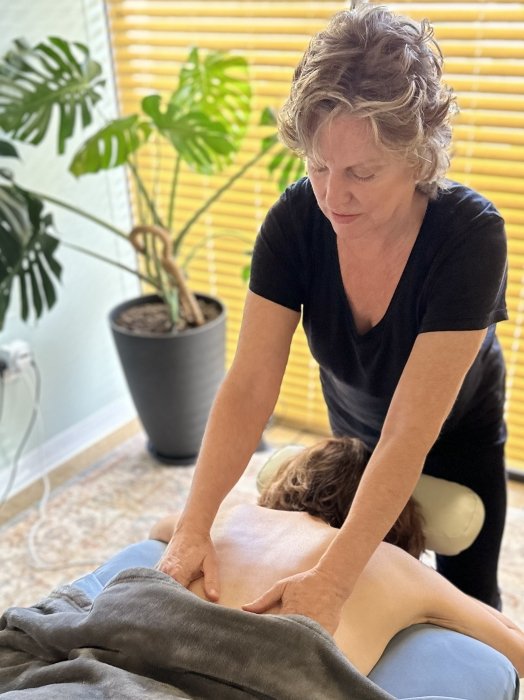
An integrative session begins with a thoughtful conversation. Your therapist learns about your symptoms, stress levels, lifestyle, and emotional health. From there, a personalized treatment plan unfolds. A single session might include gentle touch, deep tissue work, and intuitive energy healing—all guided by what your body needs in that moment. As you lie on the table, you’re not just receiving a massage—you’re entering a space of deep listening, where healing happens naturally. Most clients leave feeling relaxed, rebalanced, and sometimes emotionally lighter.
We often forget how much the body stores emotions. Tension in the shoulders might reflect old stress, or tightness in the chest might mirror anxiety. Through trauma-informed massage and somatic healing, integrative therapy helps release these emotional blocks. The result? Clarity, calmness, and a new sense of connection with your own body. Many people say they feel “more like themselves” after a session. This is why integrative massage for emotional trauma is growing in popularity—it treats the full human experience, not just muscle knots.

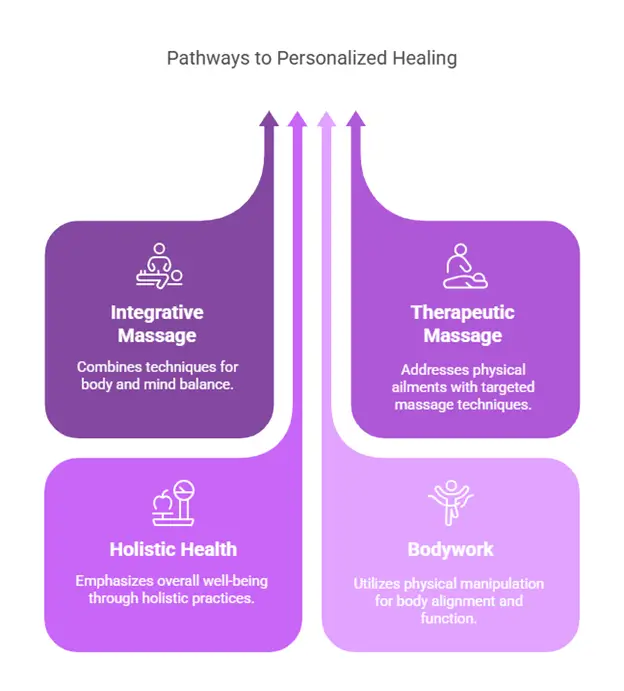
Traditional massage often follows a routine: the same strokes, the same order, the same pressure. But real healing isn’t routine—it’s responsive. Integrative massage therapy adapts to how you feel on a physical, mental, and emotional level. One week you may need deep tissue work; the next, something more soothing. This flexibility is what makes it truly therapeutic. It’s not just about feeling good during the session—it’s about addressing the root of discomfort so you leave transformed. Customized massage therapy is the future of bodywork.
Integrative massage works best when paired with a wellness lifestyle. Think of it as a reset button—it clears tension, supports circulation, and calms your mind, making it easier to stay aligned in daily life. When combined with breathwork, yoga, healthy nutrition, and emotional support tools, massage becomes part of a holistic plan. Want to feel better long-term? Start building routines that support the progress your sessions create. Healing is a lifestyle, not just an hour on the table.

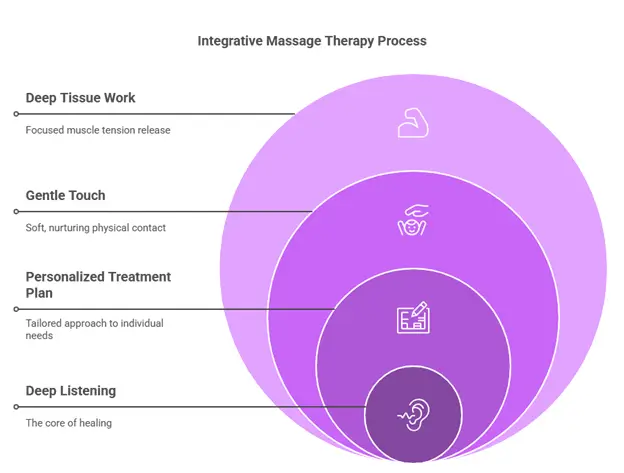
Choosing the right therapist is key. Look for someone who’s not only licensed but also trained in integrative and somatic bodywork. Check reviews, visit their website, and see if their philosophy aligns with yours. A good therapist will take time to understand your needs and adjust techniques accordingly. Ask about their experience with trauma-informed care, chronic pain, or emotional healing. You want someone who sees your whole self—not just your sore spots. If you’re searching locally, try phrases like “integrative massage near me” or “licensed massage therapist in Lancaster.”
At your first appointment, expect a warm, welcoming experience. You’ll fill out a brief health intake form and chat with the therapist about your goals. Sessions usually last 60–90 minutes and may vary each time based on how you’re feeling. The space is calm, safe, and designed for deep rest. Whether you want relief from back pain, support for emotional healing, or just to feel grounded, your therapist will guide you gently. Communication is key—your preferences and boundaries matter every step of the way.
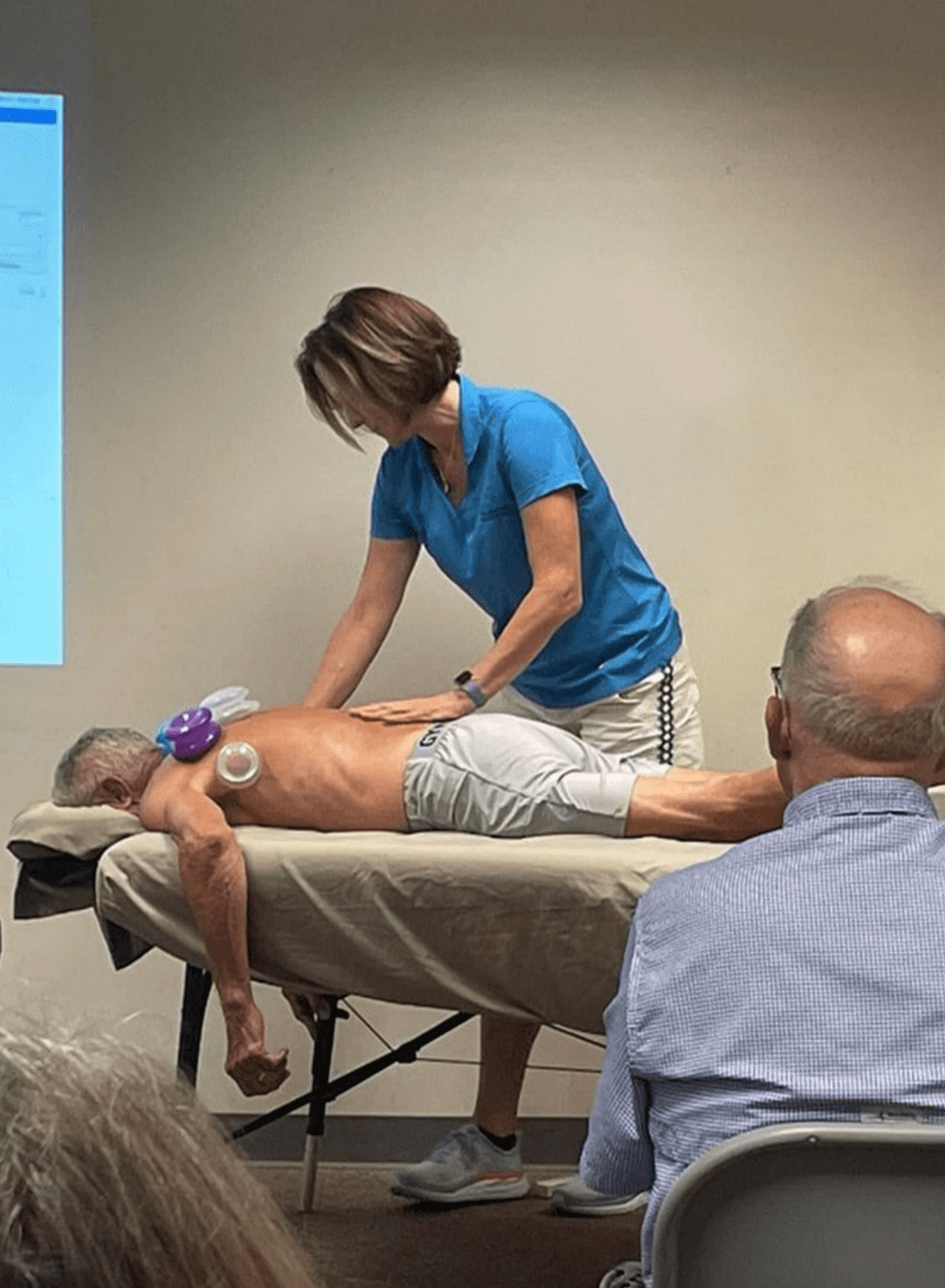
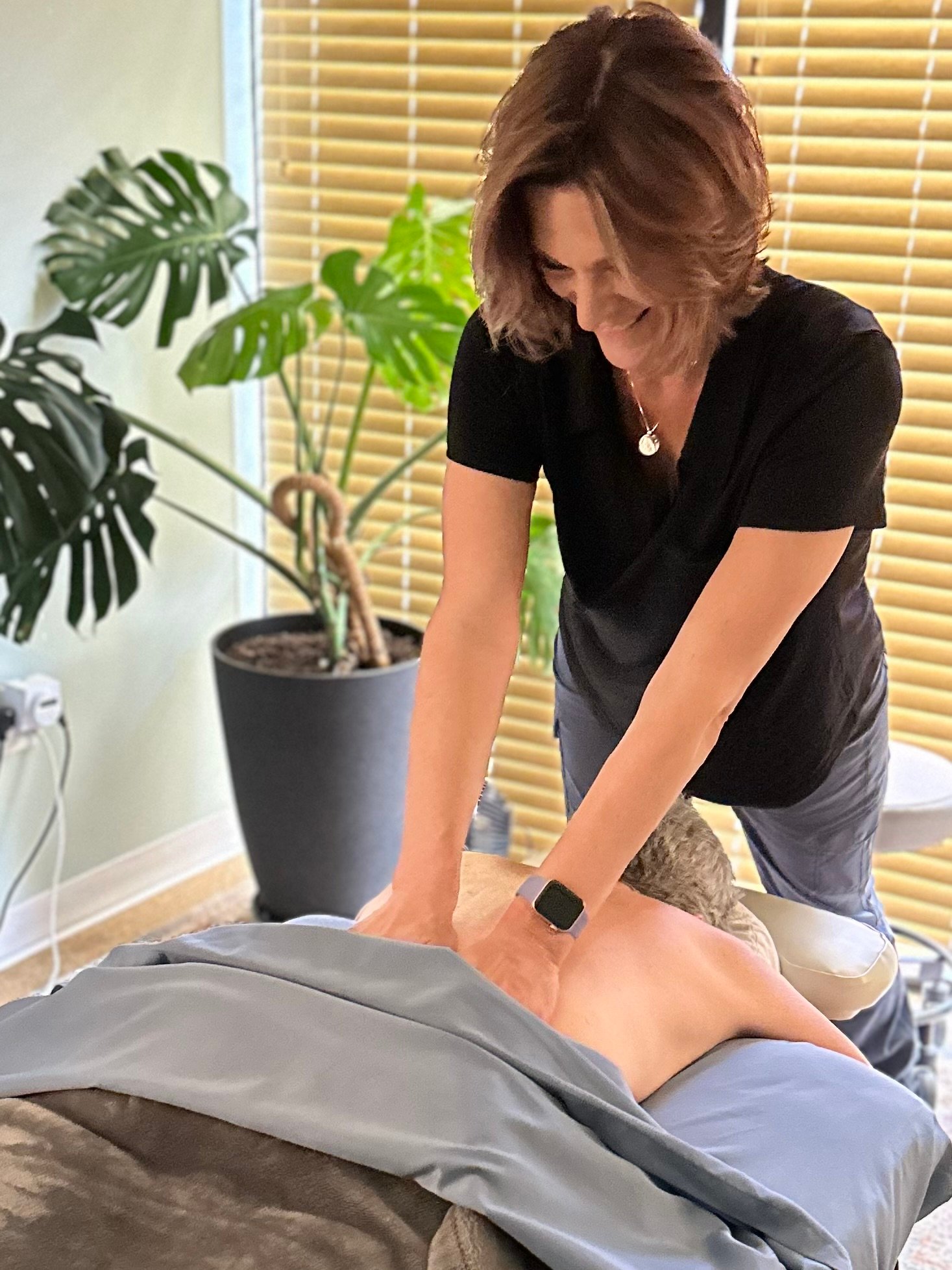
There’s no one-size-fits-all answer here. Some people benefit from weekly sessions, especially during stressful periods or recovery. Others come bi-weekly or monthly for maintenance. Your therapist will recommend a schedule based on your body’s feedback and wellness goals. If you’re addressing trauma, pain, or burnout, more frequent sessions might help at first. Over time, many clients move into a rhythm that supports their lifestyle. Think of it like going to the gym—but for your nervous system.
Clients often come in overwhelmed, disconnected, or in pain—and leave with more clarity, comfort, and calm. One client with long-term anxiety said integrative massage helped her sleep for the first time in weeks. Another shared how regular session helped ease emotional tension from childhood trauma. The power of this therapy lies in its ability to meet you where you are and gently move you toward where you want to be. These transformations speak louder than any ad.

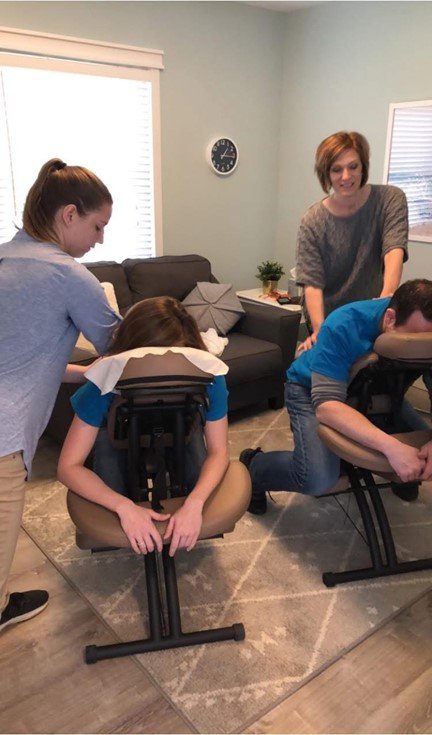
You deserve to feel good in your body. If you’ve tried other therapies without lasting results, consider giving integrative massage therapy a try. Whether you’re seeking stress relief, emotional balance, or pain management, this personalized approach can help. Start by finding a trusted practitioner near you—or reach out for a consultation. Your healing journey begins with one empowered step.
Yes! Therapists can adjust pressure and techniques for older adults with gentle, effective touch.
Some providers offer reimbursement for medically recommended massage. Check with your insurer.
Deep tissue focuses on muscle layers, while integrative blends multiple styles based on your needs.
